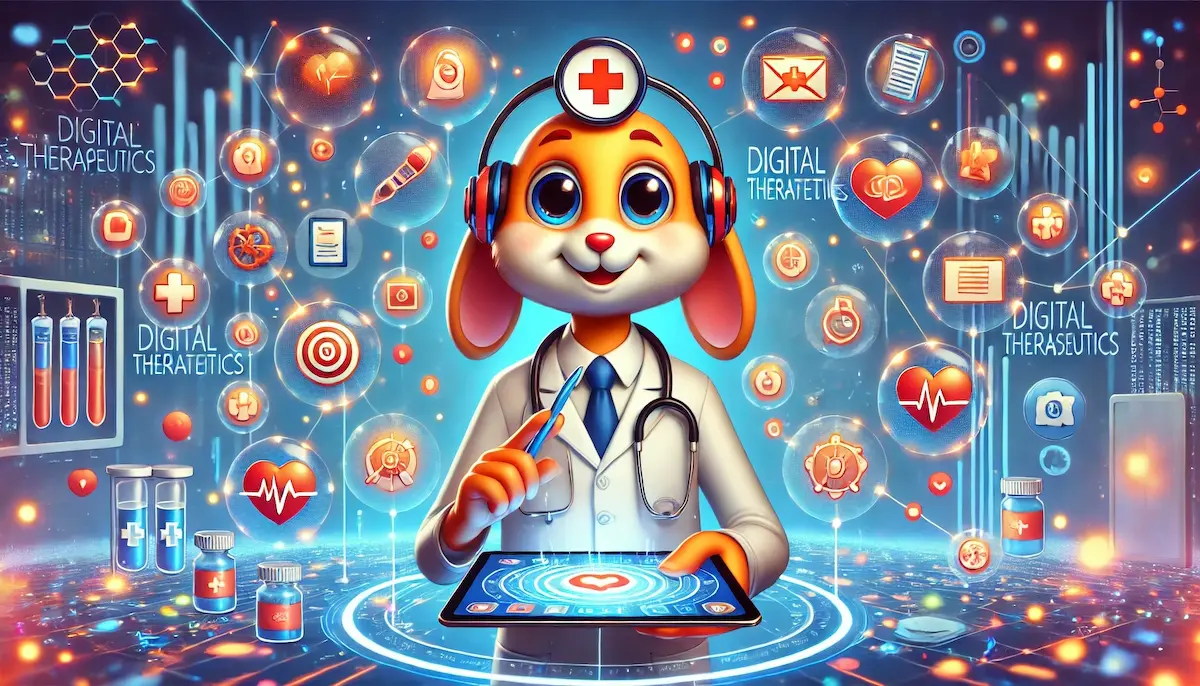Digital therapeutics (DTx) represent a transformative approach to healthcare, utilizing software-based interventions to prevent, manage, or treat medical conditions. Unlike general wellness apps, digital therapeutics are evidence-based and often undergo rigorous clinical testing to ensure their efficacy and safety. This article explores what digital therapeutics are, their key features, applications, benefits, and future trends.
What are Digital Therapeutics?
Digital therapeutics are software-driven medical interventions that deliver therapeutic outcomes through mobile apps, online platforms, or other digital interfaces. They are designed to complement or replace traditional treatments and are often prescribed by healthcare providers. DTx solutions can range from standalone treatments to integrated care plans that work alongside medications and other therapies.
Key Features of Digital Therapeutics
Digital therapeutics are characterized by several key features that distinguish them from other digital health tools:
1. Evidence-Based
Digital therapeutics are developed based on scientific research and clinical evidence. They undergo rigorous testing through clinical trials to demonstrate their safety and efficacy in treating specific medical conditions.
2. Regulatory Approval
Many digital therapeutics seek regulatory approval from health authorities such as the FDA (U.S. Food and Drug Administration) or CE marking in Europe. This approval process ensures that they meet high standards of quality, safety, and effectiveness.
3. Personalized Treatment
Digital therapeutics often use algorithms and patient data to provide personalized treatment plans. These plans can be tailored to the individual’s unique health needs, preferences, and responses to therapy.
4. Real-Time Monitoring and Feedback
DTx solutions frequently include features for real-time monitoring and feedback, allowing patients to track their progress and make adjustments as needed. This continuous feedback loop can enhance treatment adherence and outcomes.
5. Integration with Healthcare Systems
Digital therapeutics can be integrated with electronic health records (EHRs) and other healthcare systems, facilitating seamless communication between patients, healthcare providers, and caregivers.
Applications of Digital Therapeutics
Digital therapeutics have a wide range of applications across various medical fields:
1. Chronic Disease Management
DTx solutions help manage chronic diseases such as diabetes, hypertension, and asthma by providing personalized treatment plans, real-time monitoring, and educational resources to improve patient outcomes.
2. Mental Health
Digital therapeutics are used to treat mental health conditions like depression, anxiety, and substance use disorders. They can deliver cognitive-behavioral therapy (CBT), mindfulness training, and other therapeutic interventions through digital platforms.
3. Neurological Disorders
DTx interventions support the treatment of neurological disorders such as multiple sclerosis, Parkinson’s disease, and epilepsy. These solutions can help manage symptoms, track disease progression, and improve patients’ quality of life.
4. Behavioral Health
Digital therapeutics promote behavior change for healthier lifestyles, addressing issues like smoking cessation, weight management, and physical inactivity. They use evidence-based strategies to motivate and guide patients.
5. Pain Management
DTx solutions offer non-pharmacological approaches to pain management, including techniques like biofeedback, relaxation exercises, and cognitive-behavioral strategies to help patients cope with chronic pain.
6. Sleep Disorders
Digital therapeutics can treat sleep disorders such as insomnia and sleep apnea by delivering interventions like cognitive-behavioral therapy for insomnia (CBT-I) and monitoring sleep patterns.
Benefits of Digital Therapeutics
Digital therapeutics offer numerous benefits that enhance patient care and healthcare outcomes:
1. Increased Accessibility
DTx solutions can be accessed remotely, making healthcare more accessible to patients in remote or underserved areas. This convenience allows for continuous care and support.
2. Enhanced Patient Engagement
By providing interactive and personalized treatment plans, digital therapeutics engage patients more actively in their care, leading to higher adherence and better health outcomes.
3. Cost-Effectiveness
Digital therapeutics can reduce healthcare costs by decreasing the need for in-person visits, hospitalizations, and expensive treatments. They provide a scalable and cost-effective approach to managing health conditions.
4. Data-Driven Insights
The data collected by digital therapeutics can offer valuable insights into patient behaviors, treatment effectiveness, and disease progression, enabling more informed clinical decisions.
5. Improved Outcomes
Clinical studies have shown that digital therapeutics can lead to significant improvements in health outcomes, often comparable to or better than traditional treatments.
The Future of Digital Therapeutics
The future of digital therapeutics is promising, with ongoing advancements in technology and healthcare integration:
1. Artificial Intelligence and Machine Learning
AI and machine learning will enhance the capabilities of digital therapeutics by enabling more sophisticated data analysis, personalized treatment recommendations, and predictive analytics.
2. Broader Acceptance and Adoption
As evidence of their effectiveness continues to grow, digital therapeutics will gain broader acceptance among healthcare providers, payers, and patients, becoming a standard part of medical care.
3. Expanded Regulatory Frameworks
Regulatory bodies will continue to develop frameworks to ensure the safety, efficacy, and quality of digital therapeutics, facilitating their adoption and integration into healthcare systems.
4. Integration with Wearable Technology
The integration of digital therapeutics with wearable devices will provide more comprehensive and real-time health monitoring, enhancing the effectiveness of interventions.
5. Global Reach
Digital therapeutics have the potential to reach a global audience, addressing health disparities and providing high-quality care to populations around the world.
Digital therapeutics are revolutionizing healthcare by offering innovative, evidence-based treatments through digital platforms. As technology advances, DTx solutions will play an increasingly vital role in improving patient outcomes, enhancing healthcare accessibility, and reducing costs.
Blockfine thanks you for reading and hopes you found this article helpful.
